The Irish Cattle & Sheep Farmers Association (ICSA) is seeking the reintroduction of coupled payments for suckler cows and ewes under the new CAP programme, as well as an agri-environment scheme that delivers an average payment of around €9,000 per year.
However, the drystock farmer group has rejected suggestions of a cap on the number of suckler cows a farmer can keep, and has called for the scrapping of the proposed CRISS or front-loading process on direct payments.
The radical departure from the Department of Agriculture’s CAP proposals for 2023-2027 are included in an ICSA submission to the consultation process on the new farm package.
The key ICSA proposals include:
A €120 coupled payment for the first 40 suckler cows in a herd.Increased funding under the BDGP and BEEP to deliver an overall payment - including the coupled payment - of €300 for the first 40 suckler cows in a herd, with €180 per cow paid thereafter.A €35 ewe payment, including a variable coupled payment on first 250 ewes, €19 on subsequent sheep (coming from various sheep efficiency/welfare programmes).An agri-environment scheme with annual funding of €400m, which would deliver an average payment of €9,000 to its 38,000 participants, and a maximum payment of €15,000.€100 beef carbon efficiency payment as a reward for weighing, dung samples and finishing cattle at a younger age. This would be paid on a maximum of 150 head. ICSA president Dermot Kelleher insisted that the organisation’s CAP submission was fully costed, technically feasible under the EU regulations and delivered on meeting the European Commission’s objectives.
Environmentally balanced
“Moreover, it draws on the Ag Climatise national strategy and it will give hope back to the less intensive, more environmentally balanced cattle, sheep and tillage systems,” Mr Kelleher added.
The policy document points out that funding for the beef and sheep coupled payments will require 13% of Ireland’s Pillar I funding, or around €155m, to be redirected to finance these supports. Such a move is permitted under the regulations.
The variable nature of the coupled payment would act as a substitute for CRISS or the front-loading process on direct payments and therefore make the need for it redundant, the ICSA document maintained.
The ICSA proposed that the €400m budget for the agri-environment scheme could be financed by a combination of €250m from Pillar II - which equates to the current spend on GLAS - and €150m from the Carbon Tax, which was promised for farm schemes in the programme for government.
Choosing actions
The proposed environmental package is described as a “menu-based scheme”, where farmers could choose three to five actions from a list of 10.
Payments are foreseen as averaging €9,000 for the 38,000 participants, but could hit a maximum of €15,000.
The ICSA is also proposing a beef carbon efficiency payment worth €70 to €100 per head on up to 150 animals for farmers who undertake a programme designed to promote the earlier slaughter of steers, heifers, and bulls.
The submission envisages the programme requiring farmers to weigh stock, take dung samples and finish cattle at under 28 months for steers, under 26 months for heifers and under 20 months for young bulls.
Meanwhile, the ICSA submission maintains that membership of Bord Bia’s quality assurance schemes should not be a precondition for receiving CAP funding or qualifying for particular schemes.
The submission also calls for the capping of CAP payments to individual recipients at €66,000.
The Irish Cattle & Sheep Farmers Association (ICSA) is seeking the reintroduction of coupled payments for suckler cows and ewes under the new CAP programme, as well as an agri-environment scheme that delivers an average payment of around €9,000 per year.
However, the drystock farmer group has rejected suggestions of a cap on the number of suckler cows a farmer can keep, and has called for the scrapping of the proposed CRISS or front-loading process on direct payments.
The radical departure from the Department of Agriculture’s CAP proposals for 2023-2027 are included in an ICSA submission to the consultation process on the new farm package.
The key ICSA proposals include:
A €120 coupled payment for the first 40 suckler cows in a herd.Increased funding under the BDGP and BEEP to deliver an overall payment - including the coupled payment - of €300 for the first 40 suckler cows in a herd, with €180 per cow paid thereafter.A €35 ewe payment, including a variable coupled payment on first 250 ewes, €19 on subsequent sheep (coming from various sheep efficiency/welfare programmes).An agri-environment scheme with annual funding of €400m, which would deliver an average payment of €9,000 to its 38,000 participants, and a maximum payment of €15,000.€100 beef carbon efficiency payment as a reward for weighing, dung samples and finishing cattle at a younger age. This would be paid on a maximum of 150 head. ICSA president Dermot Kelleher insisted that the organisation’s CAP submission was fully costed, technically feasible under the EU regulations and delivered on meeting the European Commission’s objectives.
Environmentally balanced
“Moreover, it draws on the Ag Climatise national strategy and it will give hope back to the less intensive, more environmentally balanced cattle, sheep and tillage systems,” Mr Kelleher added.
The policy document points out that funding for the beef and sheep coupled payments will require 13% of Ireland’s Pillar I funding, or around €155m, to be redirected to finance these supports. Such a move is permitted under the regulations.
The variable nature of the coupled payment would act as a substitute for CRISS or the front-loading process on direct payments and therefore make the need for it redundant, the ICSA document maintained.
The ICSA proposed that the €400m budget for the agri-environment scheme could be financed by a combination of €250m from Pillar II - which equates to the current spend on GLAS - and €150m from the Carbon Tax, which was promised for farm schemes in the programme for government.
Choosing actions
The proposed environmental package is described as a “menu-based scheme”, where farmers could choose three to five actions from a list of 10.
Payments are foreseen as averaging €9,000 for the 38,000 participants, but could hit a maximum of €15,000.
The ICSA is also proposing a beef carbon efficiency payment worth €70 to €100 per head on up to 150 animals for farmers who undertake a programme designed to promote the earlier slaughter of steers, heifers, and bulls.
The submission envisages the programme requiring farmers to weigh stock, take dung samples and finish cattle at under 28 months for steers, under 26 months for heifers and under 20 months for young bulls.
Meanwhile, the ICSA submission maintains that membership of Bord Bia’s quality assurance schemes should not be a precondition for receiving CAP funding or qualifying for particular schemes.
The submission also calls for the capping of CAP payments to individual recipients at €66,000.



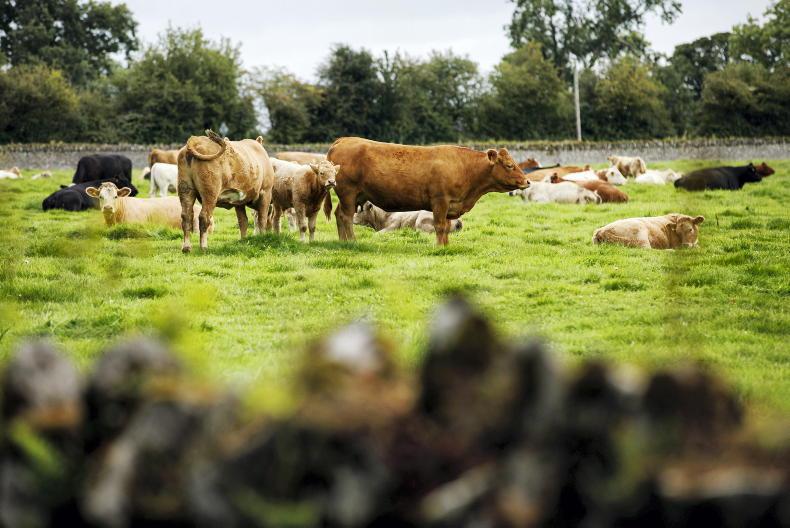
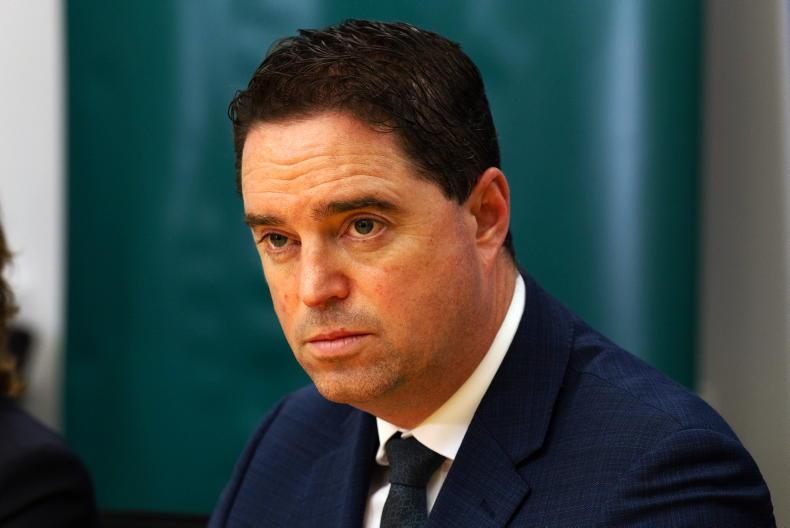
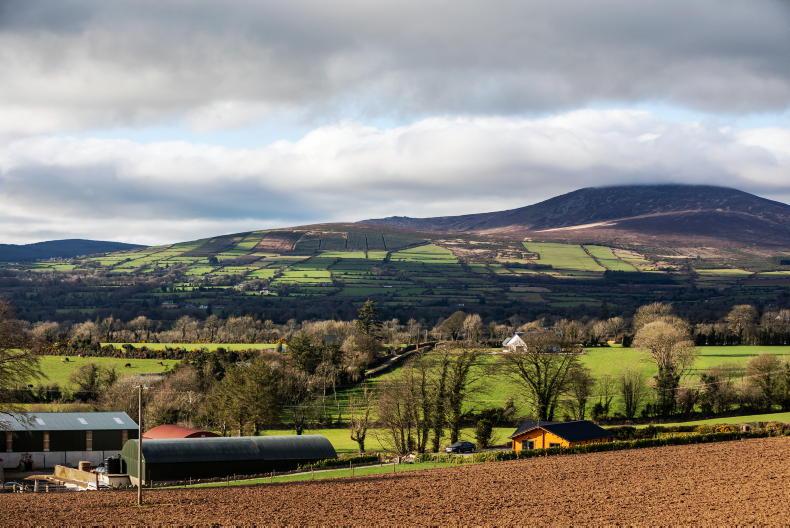
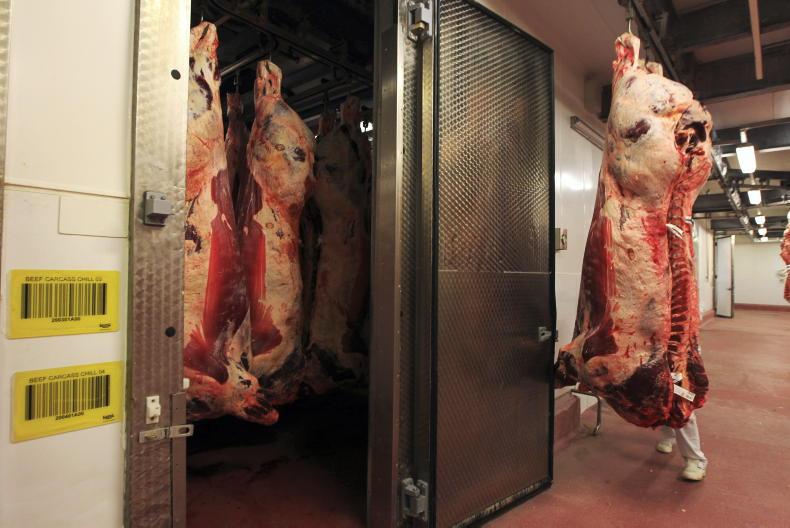
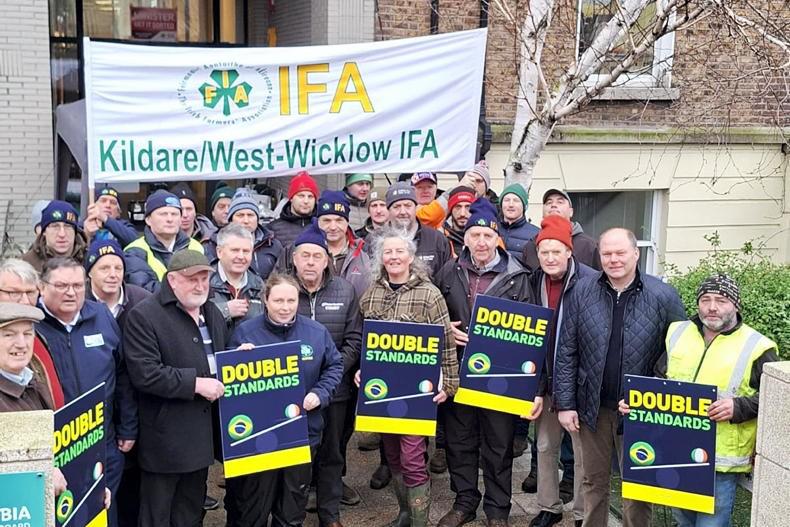
SHARING OPTIONS